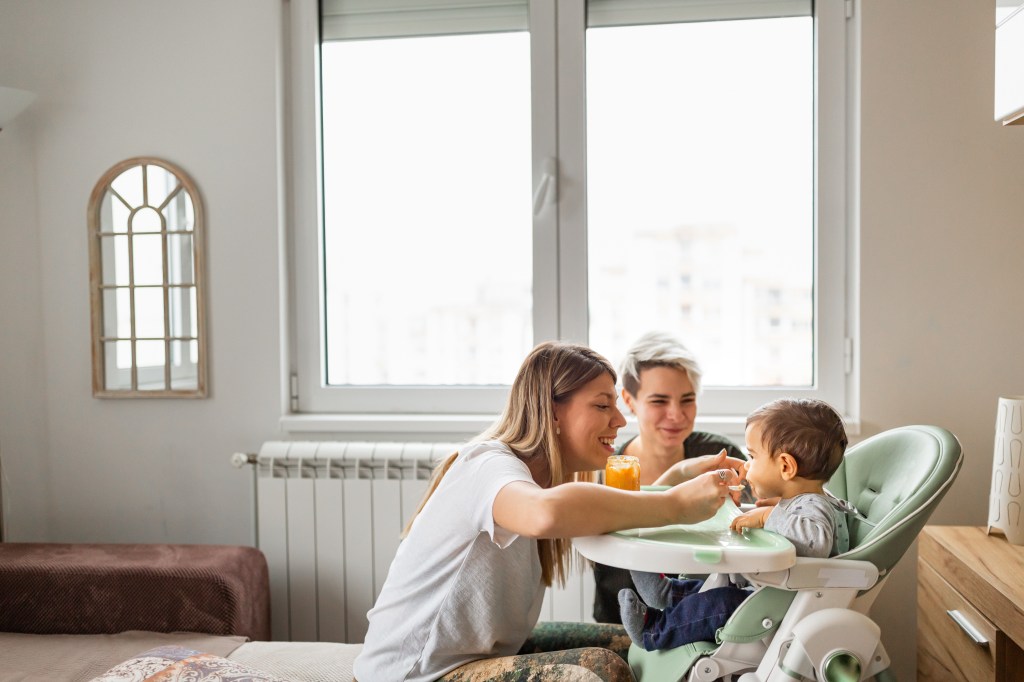Alarming number of LGBTQ+ Brits are worried they can’t foster due to ‘their sexuality’

Around 30,000 children come into care every year in the UK, according to The Fostering Network. (Renata Angerami/Getty)
A staggering percentage of LGBTQ+ Brits who want to foster a child are worried that they may not qualify “because of their sexuality”.
Around 30,000 children come into care every year in the UK, according to The Fostering Network. This means that thousands of foster families are needed to support young people and provide them with a stable home from one night to several years.
While 32% of LGBTQ+ people surveyed by Swiis Foster Care — the UK’s largest independent foster care agency — stated that they are interested in fostering a child, shockingly, 19% said they were “unsure if they would qualify because of their sexuality”.
When those surveyed were asked about the myths surrounding fostering — such as relationship status, living arrangement, age, work life, unemployment and benefits — members of the LGBTQ+ community believed these myths to be true, at a consistently higher rate than those who identify as heterosexual.

With foster household availability in England facing a 1% decrease since 2022, and a 2% decrease since 2019, now is the perfect time to debunk those myths. Many foster families are actually in the LGBTQ+ community, and there are few requirements to give a child a loving home in terms of financial and living arrangements.
To foster in the UK, applicants must be over 21 years old, have a stable living environment with a spare bedroom — regardless of whether they are private renters or homeowners — have either British Citizenship or Indefinite Leave to Remain and have a genuine interest in providing a safe, caring home for a child.
Unfortunately, not every LGBTQ+ child in care can be placed with an LGBTQ+ family, but it’s important that every child and young person — whether they are already out, or are exploring their gender identity and sexual orientation — needs to live in a home where it’s safe for them to discuss and explore their identity freely.
“Most foster carers will accept if a child is LGBTQ+, and that is great, but we need to take this a step further,” said Sarah, a foster parent, as per The Fostering Network.
“Diversity has to be a regular topic of discussion to create a safe space. It’s important to let the child know, ‘You can be what you want to be and I still love you’, but are you showing them what the options are? Or do they have to go out and find them?”
If you think you’d be able to provide a foster child somewhere to call home, you can find out more about fostering and the eligibility criteria at the Swiis Foster Care website.
How did this story make you feel?

